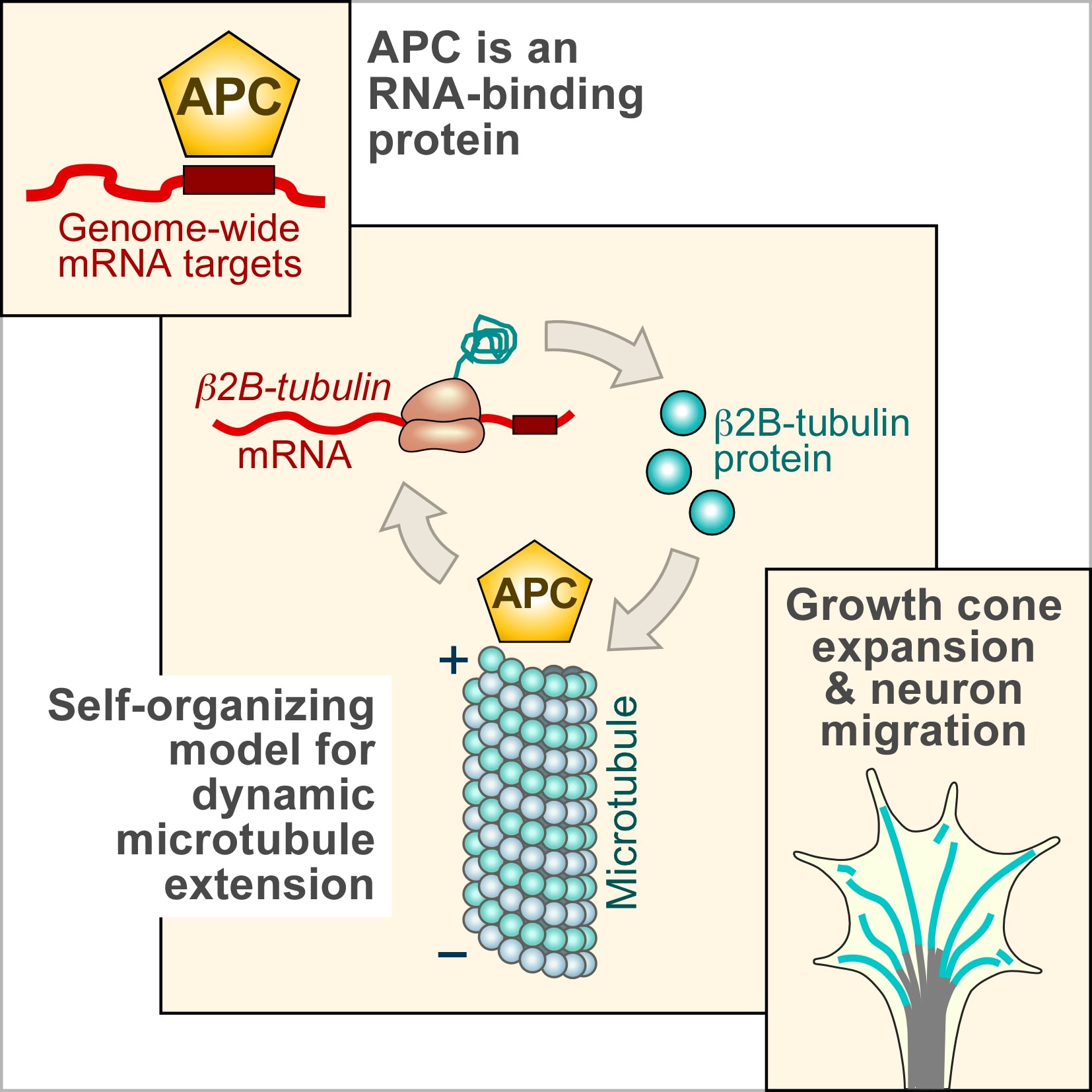
Microtubules are fundamental for the spatial organization and motility of neurons and other cells. In a recent article in Cell, the Flanagan Labidentified a novel function for the microtubule plus-end protein Adenomatous polyposis coli (APC), a scaffold protein known to be important in biology and disease. They found that APC is an RNA-binding protein, and identified an mRNA interactome, which was highly enriched for APC-related functions, including microtubule organization, cell motility, cancer and neurologic disease. Among the targets were tubulin mRNAs, and further studies showed that regulation of β2B-tubulin mRNA is critical for dynamic microtubule extension in axons, and for cortical neuron migration in vivo. These results lead to a novel protein-synthesis-based model for microtubule assembly, and identify APC as a platform linking protein and mRNA networks in normal and disease states.